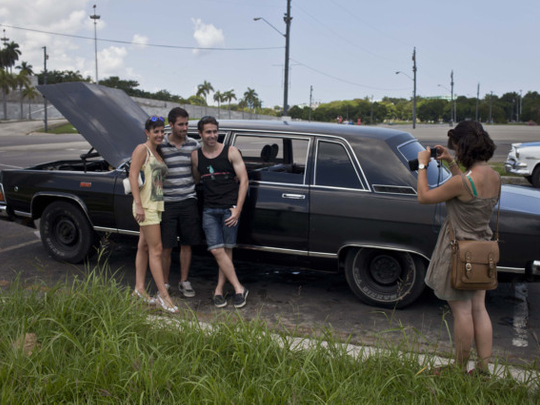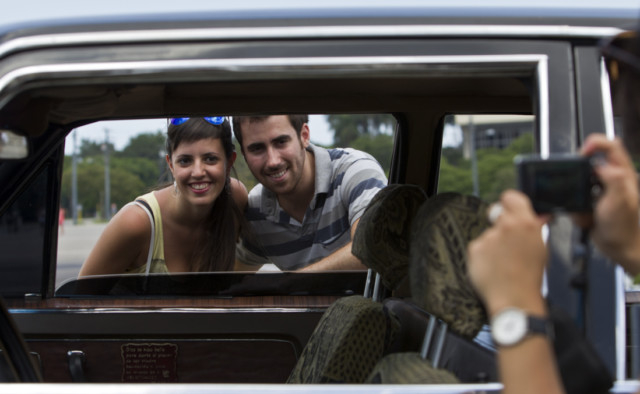
Havana: In a former life they were the “comandante’s” cars: A fleet of black, boxy, Soviet-made limousines that for years were at the disposal of the presidency in Fidel Castro’s Cuba.
Today the limos have been decommissioned and repurposed as Havana taxi cabs, at the service of tourists who want a little slice of history to go with their ride across town.
“When I tell [travellers] where the car came from, they sit in the seat back there and ... stretch their legs and say, ‘I can’t believe it!’” said Moises Suarez, 58, who has been behind the wheel of one of the ex-presidential limos for the last three years.
The luxury automobiles were produced by Russian manufacturers GAZ and ZIL in the 1960s and ‘70s. Those sent to Cuba reportedly included a ZIL-111 convertible model that was the first of its kind to roll off the assembly line, a personal gift to Castro from Soviet leader Nikita Khrushchev.
They were often used to ferry around visiting dignitaries. At least one of the limos was used occasionally by Castro himself, though he usually preferred a military-style jeep for his own transportation needs.
When former US President Jimmy Carter paid a historic visit in 2002, Castro — who always had a flair for stagemanship — picked him up at the airport in a Soviet stretch despite the fact that by that time the presidency had acquired a fleet of slick Mercedes Benzes.
Suarez, who drives for state-owned Cubataxi, said about 14 of the cars passed into the hands of the company about five years ago, and 10 are still on the road.
Many aspects of his GAZ-built Chaika — Russian for “seagull” — are original, from the camel-coloured headliner to the radio with its buttons and knobs labelled in Cyrillic lettering. At some point a Mercedes engine was swapped in, however, similar to the way that 1950s Detroit classics in Havana are still running thanks to makeshift monkeywrenching.
On the driver’s-side door, Suarez has affixed a small sign that says “Smile, Jesus loves you” — a small irony for a country that was officially atheist for decades under Castro (the policy was removed from the constitution in the 1990s).
The limo seats six passengers in relative comfort. But despite the extra leg room, it can hardly be considered a luxury ride anymore.
The faux wooden inlay is chipped and peeling, and the faded, brown-floral upholstery emits a smell best described as musty with perhaps a hint of stale cigar.
Still, it’s a novel way to cruise down the seaside Malecon boulevard or through Revolution Plaza, where a massive sculpture of Argentinian-born revolutionary leader Ernesto “Che” Guevara gazes stone-faced from the side of a building.
Suarez said fares are negotiable, from just a few bucks for a quick trip to $100-$140 (Dh367-Dh514) for an all-day road trip outside the capital.
On a recent morning, a group of Spanish tourists took turns having their photo taken next to and inside the car as it sat parked beneath the massive, pyramidal monument honouring Cuban independence hero Jose Marti.
“It’s exciting to be able to get inside a historic piece of Cuba,” said Miquel Torres, who was visiting from Barcelona. “It’s a very different kind of car.”
As Suarez drives through the city, heads turn constantly. Not only tourists but also Cubans, who instantly recognise it as one of Fidel’s fleet.
“A lot of drivers pull up next to me at stoplights,” Suarez said. “They start laughing and they say, ‘You never imagined you would be driving the comandante’s car, eh?’ ‘You have a great car in your hands.”













